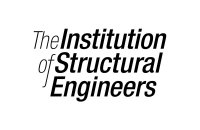This course is designed to provide training for those in temporary works but who are not undertaking the roles of either Temporary Works Co-ordinator (TWC) or Temporary Works Supervisor (TWS) as defined in BS 5975:2019 + A1:2011 (referred to hereafter as ‘BS5975’).
Overview:
The rationale for the Temporary Works General Awareness training course is to:
- Raise awareness and impart knowledge of what constitutes temporary works, how they are used, their safety critical importance, common temporary works issues and the temporary works management process
- Raise awareness of the roles and responsibilities involved in the temporary works process
- Set a common standard across the industry that can be accepted with confidence
- Allow a transferable knowledge base between employers, thus avoiding unnecessary supplementary training
Aims & Objectives:
To give delegates a general awareness and appreciation of temporary works, to understand:
- what is deemed temporary works
- how temporary works are used
- the role of safety in temporary works
- common issues associated with temporary works
- the management processes
At the end of the course delegates will be able to:
- understand what constitutes temporary works
- know how temporary works are used
- understand the importance of safety, and how to overcome common issues
- understand the need for management processes
Mode of Delivery:
Assessment will be by multiple;choice questions at the end of the course. Delegates will also be expected to be interactive during the course.
Attendance does not confer competency as a Temporary Works Coordinator or Supervisor but is for the purposes of Continuing Professional Development (CPD).
Intended For:
Delegates who are not likely to be TWC’s or TWS’s in the near future (or at all) but may be involved in the temporary works process.
- Directors, contract managers, site foremen, estimators, planners, procurement, commercial managers, project leads
- Health and safety professionals wishing to gain a better understanding of temporary works
- Delegates undertaking a graduate development programme
- Delegates not directly from civil engineering or building sectors who may use temporary works e.g. mechanical and electrical contractors, local authority building maintenance, nuclear decommissioning, or utility companies
- Delegates who have come into the construction industry from other industries
- Foreign contractors who may wish to learn from UK best practice
- Permanent works designers involved in temporary works, other consulting or structural engineers
- Principal designers and clients representatives
- People from the training industry - University and College lecturers
- Salespersons from equipment or plant suppliers








